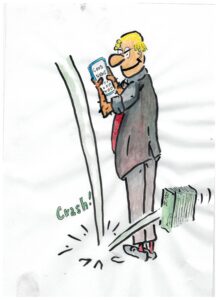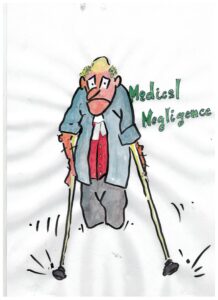Alienation of real estate by gift
- 2016-10-27
- By whiggs
- Posted in Equity, Real Property, Trusts & Trustee Law
(Source: Isin v Ozen [2016] NSWSC 1480; [157]-[165] per Hallen J)
Alienation of real estate will be effective, in equity, by gift, if the gift is “complete”: Corin v Patton (1990) 169 CLR 540; [1990] HCA 12, at 558, 563 – 570, 582 – 583; Costin v Costin (1997) 7 BPR 15,167; [1997] NSW ConvR 55-811; Motor Auction Pty Ltd v John Joyce Wholesale Cars Pty Ltd (1997) 8 BPR 15,565.
To effect the gift, the donor must do everything that, according to the nature of the property, is necessary to be done in order to transfer the property and render the gift binding on the donor: Milroy v Lord (1862) 45 ER 1185; (1862) 4 De GF & J 264.
What that means, in the context of Torrens system land, was the subject of debate until, in Corin v Patton, Mason CJ and McHugh J held, at 559, that:
“… the principle is that, if an intending donor of property has done everything which it is necessary for him to have done to effect a transfer of legal title, then equity will recognize the gift. So long as the donee has been equipped to achieve the transfer of legal ownership, the gift is complete in equity. ‘Necessary’ used in this sense means necessary to effect a transfer. From the viewpoint of the intending donor, the question is whether what he has done is sufficient to enable the legal transfer to be effected without further action on his part.”
Deane J, at 582, dealt with the way in which it can be determined that the stage had been reached when a gift of real property under an unregistered Transfer is complete and effective in equity:
“That test is a twofold one. It is whether the donor has done all that is necessary to place the vesting of the legal title within the control of the donee and beyond the recall or intervention of the donor. Once that stage is reached and the gift is complete and effective in equity, the equitable interest in the land vests in the donee and, that being so, the donor is bound in conscience to hold the property as trustee for the donee pending the vesting of the legal title. In that regard, it is not a matter of equity ignoring the provisions of s 41 of the Act and treating the unregistered transfer as effective of itself to assign the beneficial interest in the land. It is simply that equity, acting upon the ‘fact or circumstance’ that the donor has placed the vesting of the legal title within the control of the donee and beyond the donor’s recall or intervention, looks at the substantial effect of what had been done and regards the gift as complete …”
It is, thus, now clear that for land held under the Torrens system, which is said to be the subject of the gift, the donee is unable to secure the registration of her or his title in her, or his, own name, without a transfer executed by the donors. The execution and delivery of the transfer is, therefore, to be regarded as “necessary” to be done by the donor.
In Brunker v Perpetual Trustee Co Ltd (1937) 57 CLR 555; [1937] HCA 29, Dixon J (with whom Rich J agreed), wrote at 602-603:
“That delivery of the transfer to the donee or the donee’s agents is a condition which must be fulfilled before such a right will arise, appears to me to be clear. It is only by the control or possession of the instrument that the transferee could effect registration without any liability to interference or restraint on the part of the transferor. Further, I think that the donee must obtain property in the piece of paper itself and property in the paper could pass only by delivery (Cochrane v Moore (1890) 25 QBD 57). If property in the transfer remained in the transferor, his power of recalling it must also remain. For he would be entitled to possession of the paper, he could refuse to present it for registration, and he could destroy it. But, if by delivery to the donee or someone as bailee for her, the transferor has given her property in the instrument itself, then unless some further condition is expressly or impliedly prescribed by the statute, it would appear that the instrument, assuming it to be registrable, may be registered by the transferee independently altogether of the donor, and in spite of any objection on his part.”
The judgment of McTiernan J, at 609, was to like effect.
However, the delivery of the Transfer, on its own, is not enough. In Corin v Patton, Mason CJ and McHugh J continued, at 560-561:
“Whether or not it is correct to say that the production of a certificate of title is ‘necessary’ to achieve registration of a transfer of Torrens system land, it is apparent that a gift of such land cannot be regarded as complete in equity while the donor retains possession or control of the certificate of title … That is because it can scarcely be said that the donor has done everything necessary to be done by him if he has retained the certificate of title, by virtue of the possession of which the gift might well be thwarted.
In the present case Mrs Patton gave no authority for the mortgagee bank to hand the certificate of title to Mr Corin for the purposes of registration …
Accordingly, the transactions failed to pass the equitable property in the land to Mr Corin, and it is unnecessary to consider under whose control the instrument of transfer was after execution. Further, because the gift was incomplete, Mrs Patton could have recalled the transfer at any time. But it is not strictly relevant to ask whether or not Mrs Patton could have recalled the gift; that is not a criterion but rather a result of the efficacy or otherwise of the gift.”
Deane J, after the passage quoted above, continued, at 583:
“In the present case, the fact that Mrs Patton had taken no step to enable Mr Corin to procure the production of the duplicate certificate of title which was held by the bank meant that she had not done all that was necessary to place the vesting of the common law title within Mr Corin’s control … The plain fact remains however, that registration of the transfer and vesting of the legal title could not be said to be within Mr Corin’s control for so long as he was not entitled to procure production of the document of title. In any event, it is apparent that it remained in Mrs Patton’s power to intervene to prevent the vesting of any legal interest in him.”
SEARCH BLOG POSTS
LATEST BLOG POSTS
- Updated product safety mandatory reporting guidance for suppliers now available
- Pleading fraud – cause and effect is essential
- Does the Trustee’s right of indemnity have priority over the right of beneficiaries in relation to assets?
- Rules of war (in a nutshell) | The Laws Of War
- MH370 Final Report
Past Blog Posts
- December 2021
- September 2021
- August 2021
- May 2021
- April 2021
- March 2021
- August 2020
- February 2020
- September 2019
- February 2019
- December 2018
- July 2018
- April 2018
- December 2017
- May 2017
- February 2017
- December 2016
- November 2016
- October 2016
- September 2016
- August 2016
- April 2016
- March 2016
- October 2015
- September 2015
- August 2015
- May 2014
- April 2014
- March 2014
- January 2014
Categories
- Appeals
- Artificial Intelligence
- Aviation law
- Banking and Finance Law
- Blogs
- Civil Liability Act
- Class Actions
- Coding for lawyers
- common law
- Consumer Claims (TPA)
- Contract Law
- Contractual Interpretation
- Criminal law
- Deeds
- Docassemble
- duty of care
- Engineering Law
- Equity
- Evidence
- Exclusion Clauses
- Execution of documents
- Expert Witness
- featured
- Financial Services
- Fraud
- Fundraising (Chapter 6D)
- General comment
- Home Building Law
- Insurance
- Legal drafting
- Local Court
- Medical Negligence
- MH370
- Motor Accidents
- Negligence
- Occupiers negligence
- Other
- Personal Injury
- Personal Property Securities (PPSA)
- Pleading
- Practice & Procedure
- Products Liability
- Property
- Real Property
- Reasons for a decision
- Securitisation
- Security (Mortgages & Charges)
- Sentencing
- Swaps & Derivatives
- Teaching
- Transactional Law
- Transfer of financial assets in transactions
- Trusts & Trustee Law
- Uncategorized
- War and Weaponry
- Witnesses
SEARCH BLOG POSTS
LATEST BLOG POSTS
- Updated product safety mandatory reporting guidance for suppliers now available
- Pleading fraud – cause and effect is essential
- Does the Trustee’s right of indemnity have priority over the right of beneficiaries in relation to assets?
- Rules of war (in a nutshell) | The Laws Of War
- MH370 Final Report
Past Blog Posts
- December 2021
- September 2021
- August 2021
- May 2021
- April 2021
- March 2021
- August 2020
- February 2020
- September 2019
- February 2019
- December 2018
- July 2018
- April 2018
- December 2017
- May 2017
- February 2017
- December 2016
- November 2016
- October 2016
- September 2016
- August 2016
- April 2016
- March 2016
- October 2015
- September 2015
- August 2015
- May 2014
- April 2014
- March 2014
- January 2014
Categories
- Appeals
- Artificial Intelligence
- Aviation law
- Banking and Finance Law
- Blogs
- Civil Liability Act
- Class Actions
- Coding for lawyers
- common law
- Consumer Claims (TPA)
- Contract Law
- Contractual Interpretation
- Criminal law
- Deeds
- Docassemble
- duty of care
- Engineering Law
- Equity
- Evidence
- Exclusion Clauses
- Execution of documents
- Expert Witness
- featured
- Financial Services
- Fraud
- Fundraising (Chapter 6D)
- General comment
- Home Building Law
- Insurance
- Legal drafting
- Local Court
- Medical Negligence
- MH370
- Motor Accidents
- Negligence
- Occupiers negligence
- Other
- Personal Injury
- Personal Property Securities (PPSA)
- Pleading
- Practice & Procedure
- Products Liability
- Property
- Real Property
- Reasons for a decision
- Securitisation
- Security (Mortgages & Charges)
- Sentencing
- Swaps & Derivatives
- Teaching
- Transactional Law
- Transfer of financial assets in transactions
- Trusts & Trustee Law
- Uncategorized
- War and Weaponry
- Witnesses




